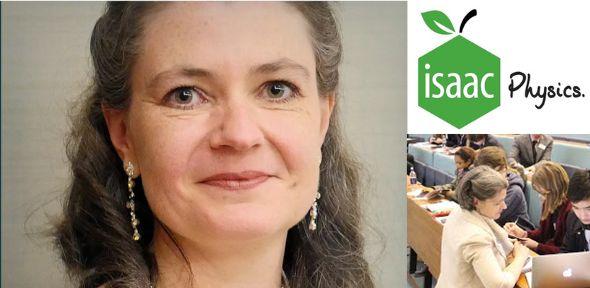
Submitted by Pooja Pandey on Thu, 02/06/2022 - 20:20
Dr Jardine-Wright has received an OBE for services to education. She is an Affiliated Lecturer at the Department of Physics, Fellow of Churchill College, and co-founder of Isaac Physics.
I am completely stunned to have been awarded an OBE. It means a great deal to me as it recognises the importance of physics education and the impact that the Isaac Physics project has made. I feel energised to keep innovating and to do more to raise the profile of physics. Lisa Jardine-Wright
Dr. Jardine-Wright has been recognised for her contribution to physics education, particularly for the impact of the Isaac Physics project, which she co-founded with the late Prof. Mark Warner.
Isaac is an Open Platform for Active Learning (OPAL) designed to offer support and activities in physics problem solving to teachers and to students transitioning from GCSE (Y11), through to Sixth Form (Y12 & 13), to university. It combines an online study tool with face-to-face events at partner schools and institutions across the UK. As a platform Isaac Physics offers support and activities in physics problem solving to teachers and students.
Reacting to the news Dr. Jardine-Wright said, "I am completely stunned to have been awarded an OBE. It means a great deal to me as it recognises the importance of physics education and the impact that the Isaac Physics project has made. I feel energised to keep innovating and to do more to raise the profile of physics.”
"I am extremely fortunate to work with highly talented and dedicated people, in particular the late Prof. Mark Warner, an inspirational physicist who co-founded Isaac Physics with me, and Profs. Alastair Beresford and Andrew Rice, whose technological vision for the Isaac platform has encouraged nearly 100 million question attempts by teachers and students thus far."
Image: Dr. Lisa Jardine-Wright at the Institute of Physics Awards, 2019 and Isaac Physics Event. Image Credit: Wikipedia and isaacphysics.org
This news first appeared on the University of Cambridge website.
